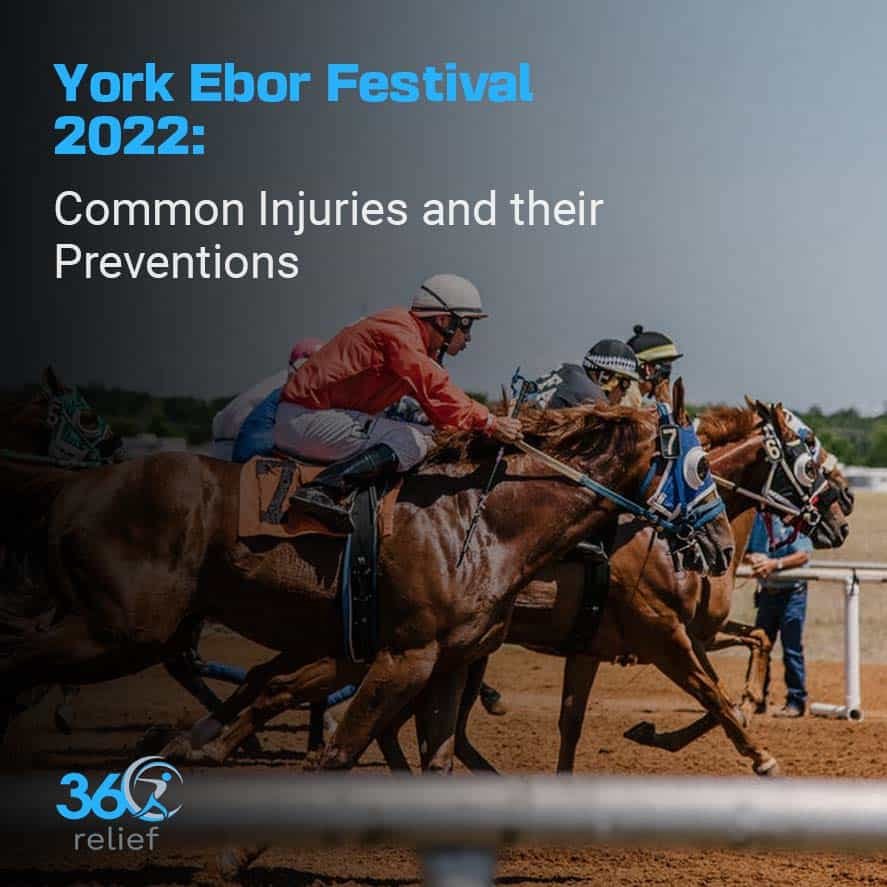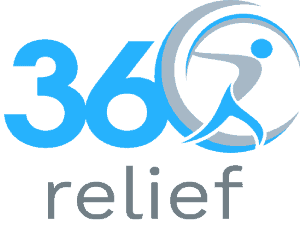
Make This Christmas Pain-Free: 10% Off on Supportive Wear!
Holidays are coming, which means that let’s welcome them with joy, laughter, and, of course, some comfort! At 360 Relief,

Table of Contents
ToggleYork Ebor Festival is known as a four days race competition held at York Racecourse, York, England. The festival is held in August every year. Last year’s festival took place on August 18th and lasted on August 21st, 2021. For the year 2022, the festival will be held between August 17th and August 20th 2022. Remember that the Ebor Festival was first organized in 1843, with the 1st running of the Ebor Handicap. The following is the detail of the York Ebor Festival 2022:
Horse riding is one of the high-contact sports, and the activity involves great exercise for the entire body. This is why a little carelessness can cause serious injuries to different parts of your body. A study has shown Horseback riding injuries among children and young adults. According to the results of this research, the overall injury rate was 0.6 per 1000 riders. However, the following is the summary of the injury rate:
The following are the most common injuries found in horseriding:
Head injuries are among the top of all horseriding-related injuries. A study by the Journal of Neurological focus revealed that horseback riding is one of the most common sports resulting in traumatic injuries, such as head injuries or concussions. However, the common head injuries resulting from horseback riding include concussions, skull fracture, brain haemorrhage, cerebral Odeoma, and diffuse axonal injury. Keep focusing on your riding, and getting professional training from professional trainers will help you get a safe horseback riding experience.
Horse lashing out or falling during riding can cause facial injuries. In 2014, a study revealed that most facial injuries during horse riding occurs due to heavy kicks. Getting proper training to treat your horse or preparing your horse accurately can help you reduce the chances of injuries.
The clavicle bone, commonly known as the collarbone, is attached to the breastbone at one end and the shoulder at the other, helping connect your arm to the body. Unfortunately, clavicle fracture is one of the most common horse riding injuries and is commonly known as Jockey’s fracture. Generally, the injury happens when the riders fall from the horse on their outstretched arm. Falling generally results when the horse refuses to jump.
Spinal injuries during horseriding are the most severe injuries with devastating consequences for the riders. It is known as the second most common injury after head injury. However, the injury usually happens due to the nature of jumping. The injuries may be incomplete spinal injuries ( including anterior cord syndrome, central cord syndrome, and brown-sequard syndrome) or complete4 spinal injuries (Tetraplegia, Paraplegia, and Triplegia).
A meniscus is a piece of cartilage working as a cushion between your thighbone (femur) and shinbone (tibia). Each knee joint comprises two menisci. Activities that put pressure on the knees or rotate the knee joints can damage these menisci. Knees hitting and falling from the horse on your knees can badly hurt your knees. However, wearing proper knee equipment and avoiding falling can keep your knees safe during riding or competition.
A sudden forceful injury to the foot can cause a metatarsal fracture. The common causes of forceful impacts on your foot are falling on your outstretched foot, kicking against a hard object, or dropping a hard object on your foot. During horse riding, you may fall or hit your foot badly on any object during jumping or landing from jumping. This condition can cause a metatarsal fracture. This is another severe condition that can keep you away from the course for a long time. Ensure that you wear proper footwear or other foot protection when you are susceptible to foot injuries.
Injuries are common in high-contact sports, such as horse riding. However, experts suggest following some preventive measures to help reduce the chances of injuries:
Learning proper horse riding techniques will give you a safe horse riding experience. Experts suggest some techniques enable you to get a secure horse riding experience. For example, sitting on the lowest part of the saddle, keeping your body aligned, distributing weight evenly, and keeping your arms flexible all the time are essentials.
Wearing proper equipment helps reduce the chances of injuries and offers you a safe horse riding experience. For example, wearing a helmet, elbow support braces, knee support braces, and foot support braces are all essential. As well as this, you can also wear other body support braces and bandages, as recommended by your professional trainers.
If you are a professional horse rider, you must practice well before entering the course. As well as this, you should practice under the guidance of your professional trainers, helping you get maximum results within less time.
The good health of both rider and horse is essential to perform well. Ensure that you feel well before riding or participating in a competition because the sport requires much energy, effort and proper focus to perform well. Similarly, the good health of your horse will also ensure a wonderful and safe horse riding experience.
Body warm-up and stretching exercises are necessary to perform before every sport or strenuous activity. Body warm ensures the body’s core and muscle temperature, increasing the rate of energy production. As well as this, regular stretching exercises help keep your muscles strong, flexible, and healthy.

Holidays are coming, which means that let’s welcome them with joy, laughter, and, of course, some comfort! At 360 Relief,

Happy Cyber Monday to everyone; it is a perfect occasion for 360 Relief to offer a special discount of 10%

This Black Friday, take advantage of exclusive 10% savings on some of 360 Relief’s best-selling compression socks and support braces!

Everyday life includes walking up stairs, but knee discomfort can make this basic activity difficult. Walking up or down stairs

Cooking is a beloved activity for many, but for those struggling with knee pain, standing in the kitchen can quickly

We’ve all been there. On a ride in a car, for instance, to the country home for a weekend break

Gardening is enjoyable for many people and those who like tending to their lawns and plants usually find it therapeutic

Do you have a painful knee problem that takes you to physiotherapy…for an injury that hampers your daily living…your workout

Training can be very much associated with some pains and injuries that may be experienced by the trainers. As there

Office workers often spend hours seated at their desks, focusing on tasks while unknowingly putting their health at risk. The

Winter often brings more than just a change in weather; for many, it also means dealing with unexpected swelling in

Compression socks have become a critical tool for athletes across all sports. Whether you’re a marathon runner, cyclist, or weightlifter,

October marks the beginning of National Cholesterol Month in the UK, a time dedicated to raising awareness about cholesterol and

Overall, there is nothing to match the experience of watching musicians perform live in an outdoor concert in Glastonbury. However,

Today charity runs have gained popularity as a way of raising cash for a cause in the United Kingdom. From
Please enter your email to subscribe to our newsletter for exclusive offers and updates
Copyright © 2025 | 360 Relief Ltd | Sitemap

